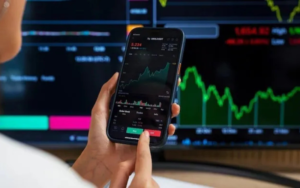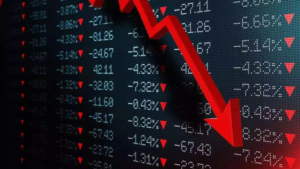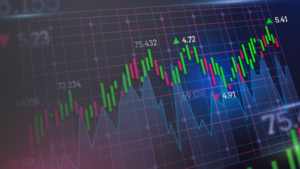The foreign currency market is a global marketplace that is open 24 hours a day, including most American holidays. Forex trading is done over the counter, which means no tangible assets are exchanged. Foreign traders are those who trade a currency pair, which are quotes for two different currencies that are linked together. A currency pair informs traders about the currency’s present market value in comparison to another. Each currency is identified by a three-letter code in a pair. These codes usually consist of two letters, one of which represents the region where the currency comes from, and one of which reflects the currency’s name.
Foreign traders are those who trade a currency pair, which are quotes for two different currencies that are linked together. A currency pair informs traders about the currency’s present market value in comparison to another. Each currency is identified by a three-letter code in a pair. These codes usually consist of two letters, one of which represents the region where the currency comes from, and one of which reflects the currency’s name.
Here is an example: the code for the British pound is GBP, and the code for the US dollar is USD.
How can you start trading in the forex market?
First, you need to open an online trading account with a top forex broker, such as Ally Invest, Interactive Broker, or TD Ameritrade. Many forex traders provide you with free demo accounts where new users can get experience without risking real money.
The seven major currencies include the Canadian dollar (CAD), Japanese yen (JPY), Swiss Franc (CHF), US dollar, New Zealand dollar (NZD), Euro, and Australian dollar (AUD).
The seven major currency pairs are as follows:
- USD/JPY
- AUD/USD
- EUR/USD
- USD/CHF
- GBP/USD
- NZD/USD
- USD/CAD
Pros and Cons of Forex Trading
Pros | Cons |
Liquid and Large market | Leverage trading expand the risk |
There are more than pairing of 100 global currencies | Unpredictable geopolitical headlines |
Operate 24 hours, five days within a week | Trading margin fees and commission |
Low starting capital need | It requires 24-hr risk management |
How do I start trading forex?
- Research Forex
Make sure to learn the basics of forex trading before placing your first trade to avoid costly mistakes. Trading platforms provide free educational material on their sites. They provide self-assessment tests and offer various courses.
- Use a brokerage account that permits you to start forex trading.
Forex trading is not available with every online broker, and different brokers have different currency pairs, fee structures, and account restrictions. Here are some popular forex trading platforms: Interactive Brokers, eToro, Ally Invest, TD Ameritrade, etc.
- Be practical, not emotional.
To minimize financial risk, all new traders should follow common-sense strategies.
- Track your position.
Keep in mind that the forex market operates for 24 hours, which can be quite volatile and vulnerable to geopolitical headline risk. A profitable trade can turn into a complete disaster, even at 3 a.m.





